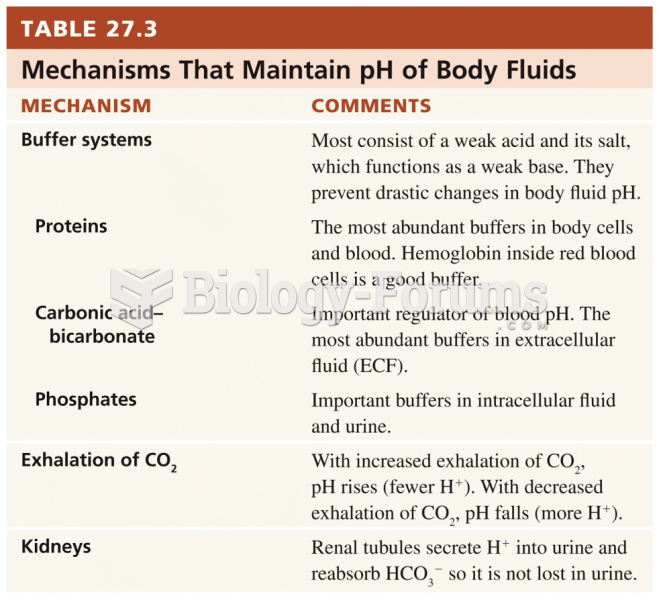This topic contains a solution. Click here to go to the answer
|
|
|
Did you know?
To maintain good kidney function, you should drink at least 3 quarts of water daily. Water dilutes urine and helps prevent concentrations of salts and minerals that can lead to kidney stone formation. Chronic dehydration is a major contributor to the development of kidney stones.
Did you know?
For pediatric patients, intravenous fluids are the most commonly cited products involved in medication errors that are reported to the USP.
Did you know?
Elderly adults are living longer, and causes of death are shifting. At the same time, autopsy rates are at or near their lowest in history.
Did you know?
The horizontal fraction bar was introduced by the Arabs.
Did you know?
Nearly 31 million adults in America have a total cholesterol level that is more than 240 mg per dL.







